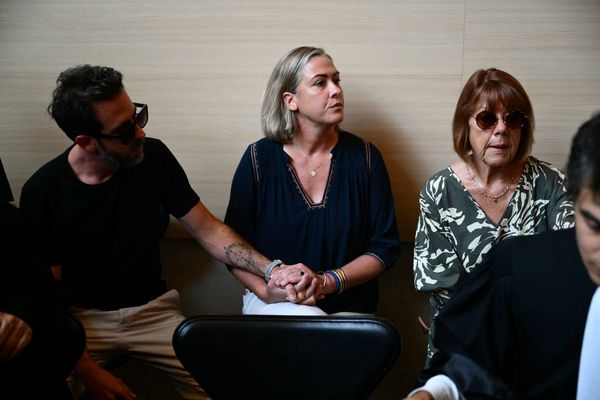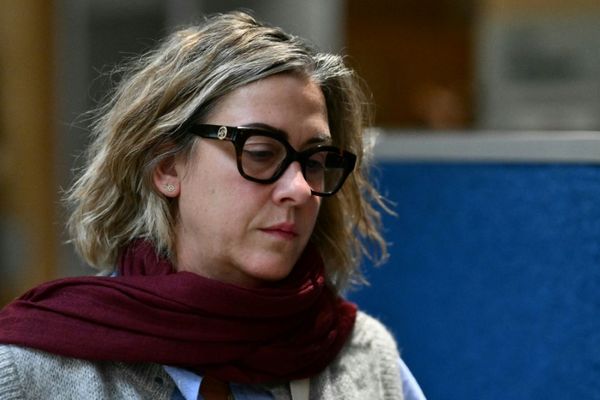
Joe Biden’s meeting in Downing Street on Monday with Rishi Sunak – their fifth in the past five months and the sixth since Sunak become prime minister – probably carries more significance than any other.
Never mind that it is essentially a stopover on the way to the Nato summit in Vilnius and being squeezed between tea with King Charles at Windsor Castle and a speech on climate finance.
The two men are not just 37 years apart in age, but increasingly a long way apart on how to handle Ukraine. The disagreements will be kept from the public eye, and the hope is that the meeting can narrow the differences.
The US disapproves if the junior partner goes public on any disagreement, or is perceived to be trying to bounce Washington into action. Pushiness, some say, was the undoing of the Nato secretary generalship ambitions of Ben Wallace, the UK defence secretary, after he tried to force the pace on arms supplies. Similarly, the watchword of Nato, built on consensus, is unity.
But it is self-evident that the two countries lean towards different positions on the war in Ukraine, and its aftermath. At issue are the conditions set for the path for Ukraine’s future membership of Nato, and the security guarantees that Volodymyr Zelenskiy should be provided by an ad hoc alliance of states in the interim.
And behind that lie questions about escalation and Nato’s future relationship with Russia. At one extreme lies a nervous Germany and at the other, impatient Baltic States and Poland.
These disagreements are matched by shorter-term conflicts over the restrictions the US continues to place on arms deliveries, delays particularly in F-16s that in British eyes have left the Ukrainian counteroffensive struggling across miles of heavily mined land in a way probably not seen since the Iran-Iraq war.
By contrast, the open disagreement over the US decision on Friday to supply cluster munitions to fill an ammunition gap is less important. Britain, as a signatory to the cluster munitions convention, can hardly approve of the US decision, but neither is Sunak in a position to try to block a request that has come from Ukraine itself.
Going into a summit of this gravitas, the US and the UK cannot afford to be at loggerheads, so the next 48 hours will be a test of Sunak’s persuasive powers. He does not naturally “speak for Ukraine” with the emotional simplicity of Boris Johnson, who said all the west’s “dodging and weaving” about Nato membership for Ukraine “had ended only in slaughter”.
So it will be a challenge to see if his quiet rationality can persuade Biden that Ukraine deserves to be told precisely how and broadly when it can get through the supposedly open door to Nato membership.
All sides agree that Ukraine cannot join in the midst of a war, since that would commit Nato states to fighting Russia. The US and UK also agree that the Nato-Ukraine commission founded in 1997 should be upgraded to a Nato-Ukraine council. The change may give Ukraine some extra leverage in the bureaucracy of Nato.
What the UK wants is something tangible to show to Ukraine that it is not being offered the same pledges of future membership made 15 years ago at a Nato summit in Bucharest.
UK ministers – notably the foreign secretary, James Cleverly, at the London Ukraine Recovery conference – have been very clear that as a signal of this intent, Ukraine should not need to fulfil a Membership Action Plan.
“I think the UK’s position would be very, very supportive if we moved on from the membership action plan recognising that the offer to Sweden and Finland didn’t require that, and Ukrainians have demonstrated their commitment to reform the military for requirement of Nato membership through their actions on the battlefield,” Cleverly said. “I think all Nato allies recognise that.”
But Jake Sullivan, the US national security adviser, at a briefing on Friday parried the issue, saying it was still “under active discussion”. In an interview with CNN, Biden unsurprisingly ruled out Nato membership for Ukraine in the middle of a war, but made membership conditional on more than the war’s end.
“We have to lay out a rational path for Ukraine to be able to qualify to get into Nato,” Biden said. “It is a process that takes time to meet all the qualifications from democratisation to a whole range of other issues.” It sounded as if he was sceptical about Ukraine’s chances of a shortcut to Nato membership.
By contrast, Ukraine’s defence minister, Oleksii Reznikov, told the Guardian on 28 June that Ukraine had already met the three pre-conditions: interoperability with Nato forces, a transparent procurement system, and civilian control of the military.
With Germany backing US caution, Sunak has to make a call on how much political capital to expend persuading Biden that a post-war largely unconditional offer of membership would not prolong the war or provoke Putin.
Torn between the UK’s dependence on the US and the UK’s natural allies in the Baltics and Poland, Sunak will need to show a new degree of diplomatic sinuousness.







